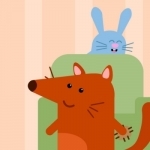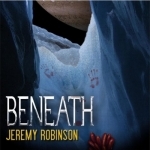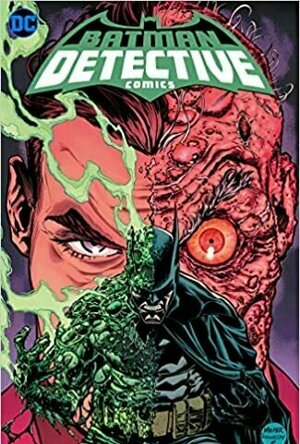
Mobo Hide and Seek
Games, Education and Stickers
App
It’s always a good time to nurture your child's curiosity. The perfect game for young explorers....

Amazing X-Ray FX² : LIVE Camera
Medical and Photo & Video
App
► The WORLD's first LIVE X-Ray CAMERA is finally a reality! Use your actual iPhone or latest gen...

Vectornator Pro
Productivity and Photo & Video
App
Vectornator Pro is the best professional vector graphic software that allows you to create...
Joe Goodhart (27 KP) rated Batman: Detective Comics, Volume 5: A Lonely Place of Living in Books
Nov 30, 2020
The ride thus far has been quite good! Tynion's treatment of Batman gives us a more faceted aspect of the Dark Knight. Yes, there is still the "Dark" to his "Knight", but there is also a bit of humanity, like the way he is in regard to Tim Drake, as well as Stephanie Brown/Spoiler. It reminds of what I liked most about the character as I was growing up in the 80s and 90s, something that appears to have been forgotten as Tom King continues to present a Batman that really was not needed! I look forward to him taking over from King on the BATMAN main book!
Spoiler, unfortunately, was still kinda mopey and angst-y in this volume as well. I dunno. When she came on board as the fourth Robin and then became the fourth Batgirl, I passed on it. It really did not have any attraction for me. However, in the first three volumes of "Rebirth" DETECTIVE COMICS, before Tim was grabbed by Mr. Oz (or was it Dr. Oz? lol), she was quite likeable, even kinda fun. After the whole "Tim Incident", the suck-itude was strong and hard! Hopefully, she will be more herself in Tynion's final volume of 'TEC!
The story was quite good, as it dealt with Tim Drake, and his role in the DCU since Dr. Manhattan made those missing 10 years go bye-bye. At points, it felt very much like a hackneyed plot element, but it still was not that bad. Not great, mind you, unlike the previous volumes, but not the worse treatment (that goes to King) of the Batman fam!
The other element that left this off my "Favorites" shelf, as well as only as high as 3 Stars, was the art from Eddy Barrows. He had some really great backgrounds and figure shots, but his faces? Um, no. Several times it looked like Tim was grinning when he should not have. Also, there were some other "that's not right" facial moments for much of the other supporting characters. I think he is a good artist, but I think whoever was editing that run should have been more aware of that!
Now, Alvaro Martinez? Perfect! His style was perfectly suited to Gotham City and the world of Batman. I would have loved him for the whole volume instead of the little bit he had. Hmm.. Maybe Tynion IV can bring him along for his upcoming run on BATMAN? #hopeful
So, yeah, I <i>liked</i> "A Lonely Of Living", but I didn't <i>love</i> it, dig? There was some good stuff, but overall, I would likely not want to re-visit it at a later date. Ah well, on to FALL OF THE BATMEN..

ALIVE Movie Maker & Music Video Editor for iMovie
Photo & Video and Social Networking
App
ALIVE is the best way to create beautiful videos. Transform everyday moments into unique works of...

Farm Animals Makeover - Cute Virtual Pet Salon
Games
App
Welcome four farm animals to your beauty salon! Play kids favorite makeover games with kitty, bunny,...

eToro: Social Trading Platform
Finance and Social Networking
App
Join eToro’s revolutionary & award-winning social trading platform for all traders alike. Our...



